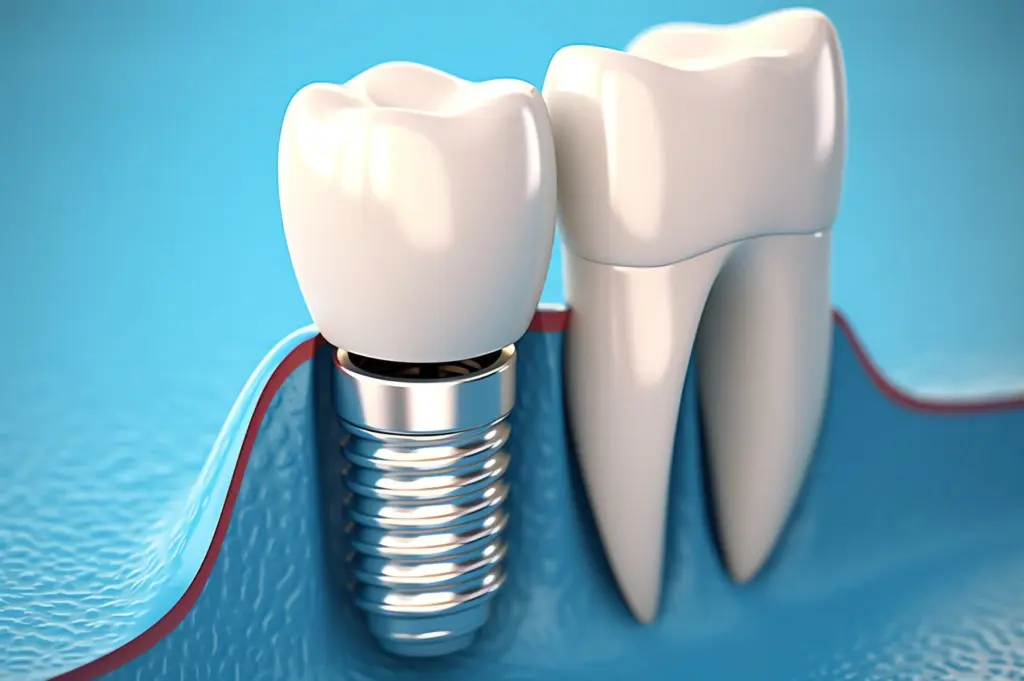Can a Molar Tooth Be Implanted?

Molar implant surgery is regarded as one of the most dependable and effective solutions for replacing any molar that may have been missing or damaged. Unlike dentures, crowns, or bridges that can be removed, these dental implants present clients with a permanent solution that looks very natural. This means that not only will your smile be restored, but also your ability to chew and speak well, as well as smile, will be greatly enhanced. If you are wondering if it is really possible to implant a molar and its modality, this blog will guide you through, thus steering the whole process of molar dental implant surgery. This is because when it comes to your teeth, you need to make informed decisions and understand the different options available to you.
What Are Molar Teeth?
Molar teeth are the wide, flat teeth located at the back of your mouth and are essential for grinding and breaking down food. They are the teeth responsible for chewing food. Molars come in three variants: first molars, second molars, and third molars (wisdom teeth). These teeth have points on their surfaces, known as cusps, which, when grinding food, help them to break it into smaller pieces during digestion.
- Function: Since molars are the ones primarily in use when people chew and grind their food, their main function is chewing.
- Location: Molar teeth are situated at the posterior of the mouth, with three such sets in each quadrant (upper left, upper right, lower left, and lower right).
- Anatomy: The teeth, which are designed for food processing, have broad, flat surfaces.
As you age, the molars, although they are the most durable teeth, become more susceptible to wear, decay, and other dental problems. The life of molars as human teeth is finite. When they have been working under pressure external to what they are designed for a while, they can decay, thus obliging them to acquire a replacement.
Can Molar Teeth Fall Out?
Actually, there are several reasons molar teeth can fall out. Some of them are:
- Tooth Decay: It is likely that a cavity or infection could result in the tooth structure and, consequently, tooth loss.
- Gum Disease: Periodontal disease is a silent killer of the gums since it can be the cause of the recession of gums from the teeth, and thus, the teeth appear without the necessary support and get loose easily, leading to mobility and loss of the tooth.
- Trauma or Injury: An unexpected incident or accident may have such an impact as knocking the tooth out of its place or breaking it that the tooth cannot be saved and as a result of that, the tooth can be lost.
- Age-Related Wear: Over time, the teeth, including molars, are naturally worn down in function due to continuous use in eating and grinding food.
If a person wants to keep his or her molar teeth in good condition, then the first vital thing to do is to keep high standards in oral hygiene, namely, to always be brushing, flossing, and visiting the dentist. And if by any chance, the molar is lost, the implant of the tooth is the most valid solution for regaining function and appearance altogether.
Do You Lose Your Molar Teeth?

Yes, it happens that people lose significant molar teeth quite often owing to different reasons. The picture is that once the event takes place, it may give rise to parallel manifestations of dental and oral health, namely:
- Difficulty in Chewing: It is really necessary to keep teeth in good shape as tooth loss will adversely affect the chewing of food, leading to poor digestion and a general poor health condition.
- Shifting of Surrounding Teeth: The position of the central teeth can be influenced by the removal of a molar, resulting from this, a new and wrong tooth alignment would get shaped and developed.
- Bone Loss: Once a tooth is removed, the bone on the part of the mouth where the tooth was located can start to wear out till it is almost entirely lacks of bone, and that can lead to complications such as sunken cheeks or a weakened jaw that will finally be the cause of a lost tooth.
Through dental implants, one’s lost molars can be completely replaced without having to go through any additional treatments, and at the same time, the tooth and the jawbone will be reinforced. The use of a titanium post in implants helps the jawbone to grow by fusing directly with the implant, and besides, the resulting bone erosion will be halted at that point.
Can Molar Teeth Be Saved with Implants?
Yes, molars can be saved and replaced with dental implants. Dental implants are titanium posts that are placed surgically into the jawbone where they act as replacement tooth roots. The method of implanting a molar consists of standard stages:
- Initial Consultation and Assessment: The dentist will check your oral health, take X-rays, and create a treatment plan.
- Implant Placement: The titanium post is placed into the jawbone, and the site is allowed to heal and integrate with the bone.
- Abutment Placement: After the implant has fused with the bone, an abutment is placed to connect the implant to the crown.
- Crown Placement: Finally, a specially designed crown is put on the surface of the implant, thus, your natural look and molar functionality are fully restored.
Benefits of Molar Implants:
- Restores Full Functionality: Molar implants not only help to restore the natural look of your teeth but also allow you to chew, speak, and smile without any difficulties.
- Long-Lasting Solution: Dental implants are a lasting solution to missing teeth as they have proven to be durable over time and can last a lifetime with proper care.
- Prevents Bone Loss: Implants not only replace the lost teeth but also help maintain a healthy jawbone by preventing bone loss.
- Natural Look and Feel: Implants can also pass through a custom design that looks, feels, and functions the same way as natural teeth do.
Does It Hurt to Implant Molars?
The process of implanting molars is typically not very painful. Local anesthesia is used by the doctors to numb the area during the surgery, thereby, the person will not feel any pain while the implants are being inserted. You may feel a little discomfort or swelling after the procedure, and in most cases, these symptoms are manageable with some ordinary pain medicines.
- Anesthesia: Local anesthesia ensures you feel no pain during the procedure.
- Post-Operative Care: You may experience mild discomfort, swelling, or bruising after the procedure, but these symptoms usually subside within a few days.
- Recovery Time: Most patients can return to their normal activities within a few days, although it may take several months for the implant to fully integrate with the jawbone.
The patient must follow the dentist’s guidelines for aftercare to the letter, to ensure correct healing and avoid potential problems. They can conduct a visual inspection at a follow-up appointment to ascertain the implant status and make sure that everything is in good health.
Conclusion
Dental implantation is a perfect method of solving the issue for those who have lost or worn out their molars teeth. Do you consider a molar tooth extract because of corrosion, fracture, or abrasion? In that case, dental implants can be prescribed to replace the lost teeth and help you enjoy your natural cleaning and chewing process. With their natural look and robustness, implants are the everlasting answer to being toothless, which, in turn, enables them to bolster your oral health and your self-assurance.
If you have lost a molal or are considering a dental implant, contact a professional and experienced dentist to help you understand the procedure and its benefits in your case.
FAQ About Molar Implants
Yes, molar teeth can be replaced with dental implants, which are created to look and function like your natural teeth.
Usually, until the crown is ready and placed, the process of complex implantation of molar teeth lasts a few months, including the healing time for the dental implant.
Yes, molar implants are generally regarded as the best possible solution to tooth loss. With this in mind, patients can expect it to last for the rest of their lives.
The chances of an implant failing are small, but they could be caused due to infections, lack of oral hygiene, and other factors. Regular visits to the dentist and proper care are necessary to stay away from complications related to dental implants.
For instance, in extreme situations where the bone of the jaw is not able to fully support the implant, the need for a bone graft becomes necessary. Your dentist will examine your bone density, and if a deficiency is present, then the implant surgery is the next step.




